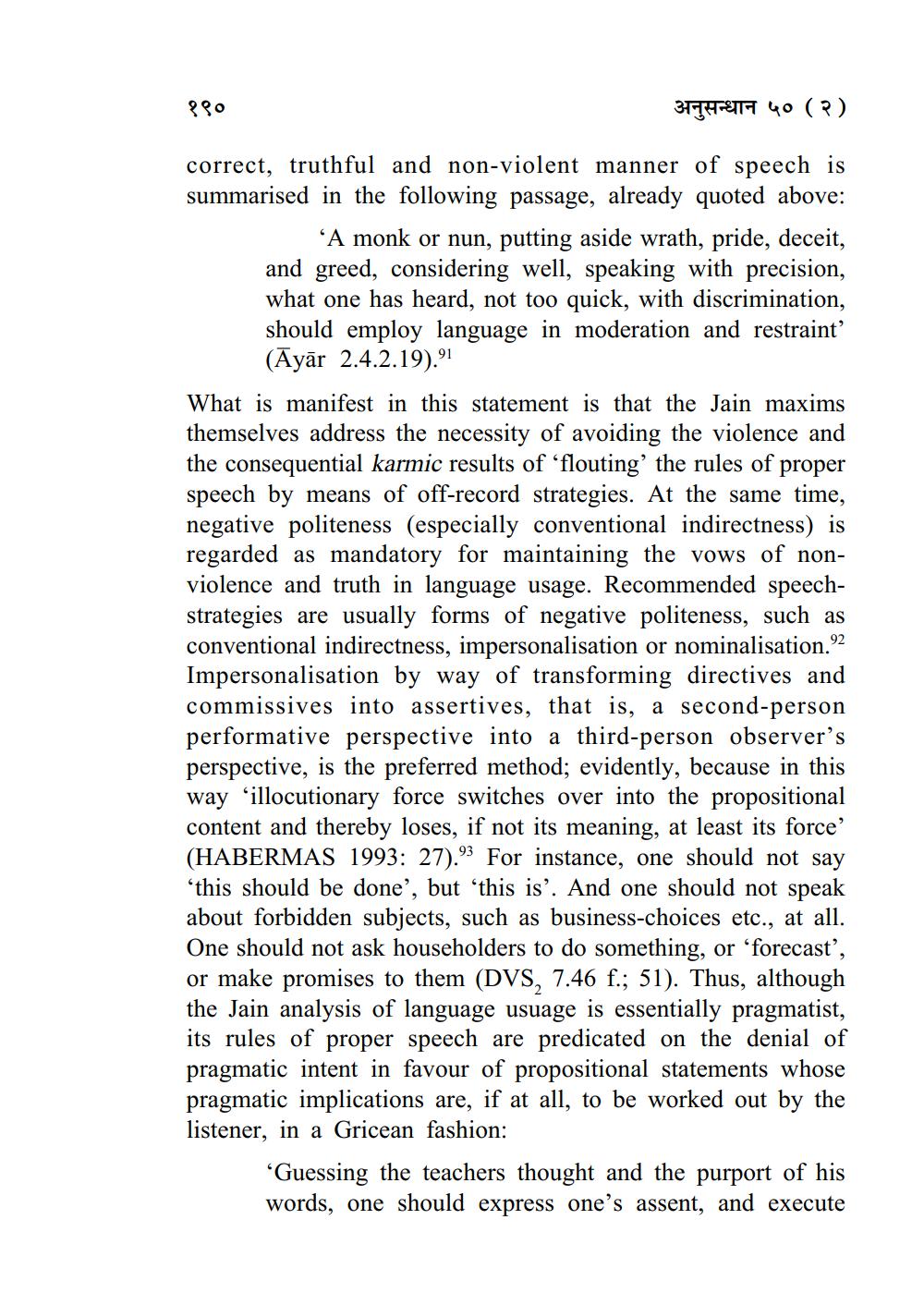________________
१९०
31LHEITA 40 (?)
correct, truthful and non-violent manner of speech is summarised in the following passage, already quoted above:
A monk or nun, putting aside wrath, pride, deceit, and greed, considering well, speaking with precision, what one has heard, not too quick, with discrimination, should employ language in moderation and restraint
(Āyār 2.4.2.19).91 What is manifest in this statement is that the Jain maxims themselves address the necessity of avoiding the violence and the consequential karmic results of 'flouting' the rules of proper speech by means of off-record strategies. At the same time, negative politeness (especially conventional indirectness) is regarded as mandatory for maintaining the vows of nonviolence and truth in language usage. Recommended speechstrategies are usually forms of negative politeness, such as conventional indirectness, impersonalisation or nominalisation.92 Impersonalisation by way of transforming directives and commissives into assertives, that is, a second-person performative perspective into a third-person observer's perspective, is the preferred method; evidently, because in this way ‘illocutionary force switches over into the propositional content and thereby loses, if not its meaning, at least its force' (HABERMAS 1993: 27).93 For instance, one should not say “this should be done', but this is'. And one should not speak about forbidden subjects, such as business-choices etc., at all. One should not ask householders to do something, or ‘forecast, or make promises to them (DVS, 7.46 f.; 51). Thus, although the Jain analysis of language usuage is essentially pragmatist, its rules of proper speech are predicated on the denial of pragmatic intent in favour of propositional statements whose pragmatic implications are, if at all, to be worked out by the listener, in a Gricean fashion:
'Guessing the teachers thought and the purport of his words, one should express one's assent, and execute




